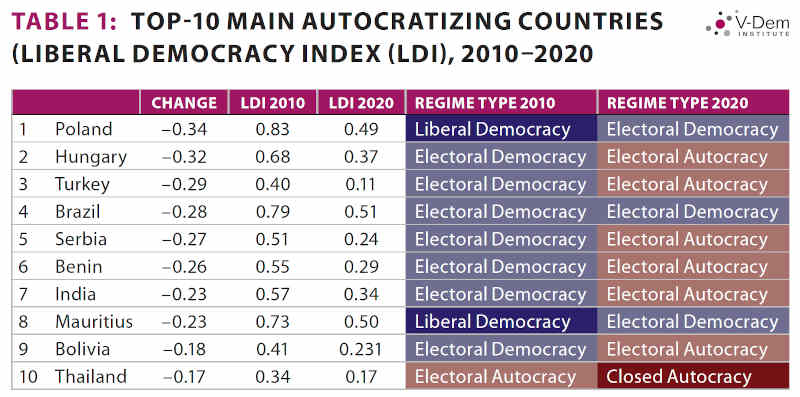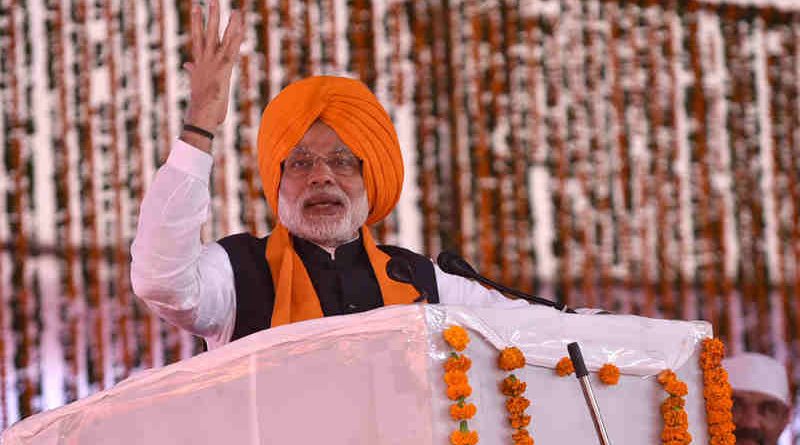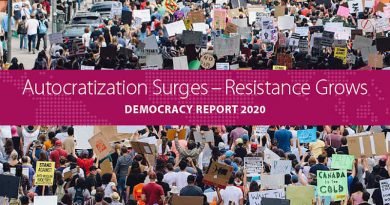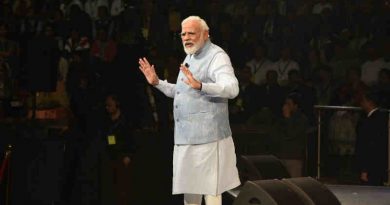Global Report Predicts More Chances of India-Pakistan War

After India turned into an electoral autocracy, the statistical odds of a militarized dispute with Pakistan are now 3 times higher than 10 years ago.
By RMN News Service
A new policy document released by the V-Dem Institute states that democracies do not fight wars with each other and fewer democracies in the world will lead to more wars. It gives the example of India which has more chances of war with Pakistan now when India is an autocratic country under Prime Minister (PM) Narendra Modi.
“After India turned into an electoral autocracy, the statistical odds of a militarized dispute with Pakistan are now 3 times higher than 10 years ago,” V-Dem Institute said in its document titled, “Does Democracy Bring International and Domestic Peace and Security?”
In its Democracy Report 2021, the V-Dem Institute reveals that India has lost its status as an electoral democracy, as the Modi government is imposing various restrictions on multiple facets of democracy such as civil society and free speech.
The document released on May 11 adds that democracies are also much less prone to civil war and domestic volatility compared to autocracies. But transitions are risky: The odds of civil war in a regime transitioning from autocracy to semi-democracy is nine times higher compared to before the change.
A large body of scientific evidence demonstrates that human security, as well as international and domestic peace are strongly and positively related to democracy. The democratic peace axiom – that democracies do not fight wars against each other, and that the spread of democracy reduces armed disputes and wars – is soundly confirmed by a number of studies.

A recent study using the V-Dem democracy indices shows that there is no case of a war in any pair of states whose democratic level was above 0.61 on the V-Dem electoral democracy index.
Being part of a region with high levels of democracy also matters. Two states located in a region with low levels of democracy are 70% more likely to have a fatal armed conflict than a pair of states placed in a region with high levels. Consequently, according to V-Dem analysis, the current wave of autocratization should be expected to lead to a world with more international conflicts, with devastating consequences for human security.
A series of scientific studies demonstrate that democracies are also less prone to civil war and domestic volatility compared to autocracies, especially long-term, institutionalized democracies. The key is that democracies are better at absorbing and channeling discontent through legal institutional means and accountability mechanisms that in turn lower the risk of domestic conflict.
Yet, the V-Dem report says it is vital to recognize that semi-democracies and countries with recent transitions tend to be more volatile with a higher risk of civil and international conflict. Such a regime is around four times more likely to experience domestic unrest compared to a well-established democracy.
The V-Dem Institute is an independent research institute. The Headquarters of the project is based at the Department of Political Science, University of Gothenburg, Sweden.
💛 Support Independent Journalism
If you find RMN News useful, please consider supporting us.




